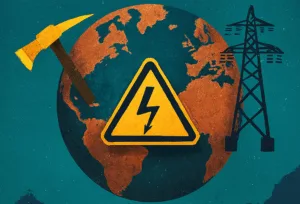In recent weeks, I had the chance to spend time with classmates during the second in-person module of my master’s program—an enriching experience focused on key topics such as oil and electricity markets, gas fundamentals, coal, LNG, and more.
Our group is wonderfully diverse, with students from countries like India, Australia, Norway, France, Spain, Brazil, Russia, Ukraine, and China. From Africa, we have classmates from South Africa, Guinea, Zambia, and Alice—from Rwanda.
Alice is a young lawyer whose thoughtful contributions consistently enrich our classroom discussions. She speaks perfect English and French, and from the moment I met her, I wanted to know more about her story. The passion in her arguments and the way she challenges the one-sided narrative of the energy transition resonates deeply with my own views.
Every time a professor mentioned Africa as an example, she would frown. Curious about what was bothering her, I approached her. She told me it frustrated her to see how even in a highly educated space, people spoke of Africa as though it were a single, homogenous entity—like one giant country that could simply be advised on what to do.
And she’s right. We tend to generalize, forgetting that Africa is a vast continent, home to 1.4 billion people, speaking over 2,000 languages, and projected to reach 2.5 billion by 2050, making it the fastest-growing region in the world. Africa is a giant awakening.
By 2023, it’s estimated that one in every three children born in the world will be born in Africa.
This population growth will inevitably come with a desire to improve living conditions—something that is undeniably tied to economic growth, which in turn is tied to energy consumption.
If we think of development as a train, that train has a “well-being” car and several “upgrade” cars. In developed countries, people may ride in multiple upgrade cars. Meanwhile, new generations in developing countries are trying—rightfully—to get into the well-being car. And those already there are seeking an upgrade.
That’s why it’s easier for developed countries to talk about degrowth. Because for them, degrowth means giving up an upgrade—not giving up the well-being car itself. This is the contradiction that Alice couldn’t ignore.
So why, Alice asked, are the same countries importing fossil resources—sometimes from African nations like Algeria—now restricting those very countries from developing their own energy resources, all while they themselves push forward in the energy transition? The answer wasn’t hopeful, and Alice cried—cried in despair over Africa’s uncertain future.
The truth is, no African country is planning to degrow—in fact, quite the opposite. That’s why her tears carried the weight of frustration over what feels like a new kind of green dependency—one whose benefits remain to be seen in a continent still burdened by the painful legacy of colonialism, which, paradoxically, fully exploited its resources.
All I could do was sit with her, understanding without fully understanding, and try to bring that reflection back to what such a future might mean for Colombia.
Carolina Rojas Gómez
Student, Executive Master of Management in Energy
BI Norwegian Business School


